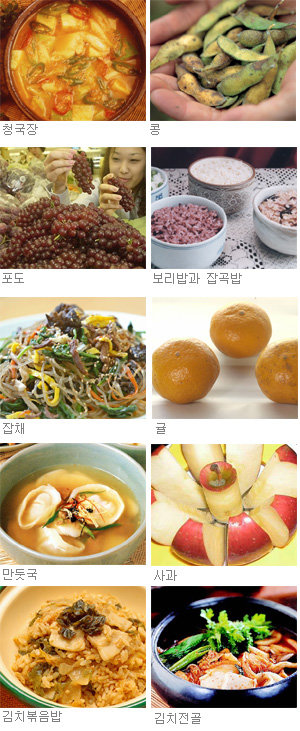Food That Makes Your Intestines Happy
Food That Makes Your Intestines Happy
Posted January. 09, 2005 22:55,

Excretion is as an important function as eating. The pleasant sensation excretion creates also provides a sense of psychological stability.
Therefore, people who have difficulties in excreting have high stress. It is diagnosed with constipation when patients have fewer than three times of excretion per week or when they rarely get the job done at a stool.
Constipation patients have swiftly increased for the past 20 years. The numbers of child constipation also tend to rise. The major causes blamed are westernized dietary, lack of activities, and stress. So, constipation has been called as the disease of civilization and modern times.
Some assert that the western-style of using a stool has been a culprit of constipation. They claim that people suffer constipation due to an idiosyncratic way of putting pressure down to the bottom sitting on the stool. Usually, people think they push pressure to the anus, but most of the time, the concentrated pressure simply ends in the stomach. In this case, constipation pills never work. More than 80 percent of patients can see results if they get accustomed to biofeedback (a way of muscle re-education) using an endoscope.
However, the best precaution as well as remedy is adjusting your lifestyle to a preferable one.
○ Fast food and frozen food cause constipation
Breakfast should never be skipped. Peristaltic movement from stomach, big intestines, to small intestines is a key to successful excretion; however, if you skip breakfast, this movement does not function properly. When skipping a meal is inevitable, make sure to drink two cups of cold water or a cup of cold milk.
When you reduce the amounts of food intake intending to lose weight, this can be a cause of constipation. This time the peristaltic movements of intestines do not function properly.
For people suffering from indigestion, it is not a good idea sticking to tender food. Likewise, fast food and frozen food are harmful for constipation patients.
○ Remedy lies in dietary fiber
According to the Korean Nutrition Society, a recommended amount of fiber daily is 20~25g. Interestingly, Koreans who seem to have a high portion of vegetables in their diets show a lack in their intake of dietary fiber. Based on the research done in 1990, the average intake of fiber for Koreans remained 17.7g. According to a recent survey done among female college students, their average fiber intake just reaches 15g on average.
If a body lacks dietary fiber, the excrement making process delays and you dont get the sense that it is time to have a stool. Even if you sit on a stool, it is hard to get the job done due to the hardened excrement.
Try to have food having high intake of dietary fiber. The followings are recommended: cereals such as beans, whole wheat, rye, barley; vegetables such as broccoli, cabbage, carrots, celery; fruits such as tangerines, apples, grapes, peaches; and seaweeds.
These days, dietary fiber supplements such as cereals and beverages are available in the market. If taking each food individually is bothersome, using those supplements is a smart idea.
○ Pay attention to beans
What would you name it if you picked the best food for constipation patients? Many experts would name it beans. Beans have a high intake of dietary fiber. New research results have released recently supporting that oligo-sugar contained in beans work well reducing the constipation conditions.
A Japanese medical laboratory had an experiment with people who excrete 3.5 times per week; their excretion increased to 4.5 times when they had one gram of oligo-sugar. When the amount extended to two grams, the number of excretion rose to five times per week. When the intake of oligo-sugar was suspended, the excretion time went back to the frequency before the experiment.
Oligo-sugar aides the reproduction and activities of lactic ferments in the intestines, and eases the process of excretion by activating the movements of intestines and diminishing the excrements duration in the intestines.
(Reference= Dr. Park Hyo-jin at Department of Internal Medicine at Yongdong Severance Hospital, Dr. Lee Poong-ryeol at Department of Internal Medicine and Dr, Park Hwa-yeong at Department of Pediatrics at Samsung Medical Center)
Sang Hoon Kim corekim@donga.com







